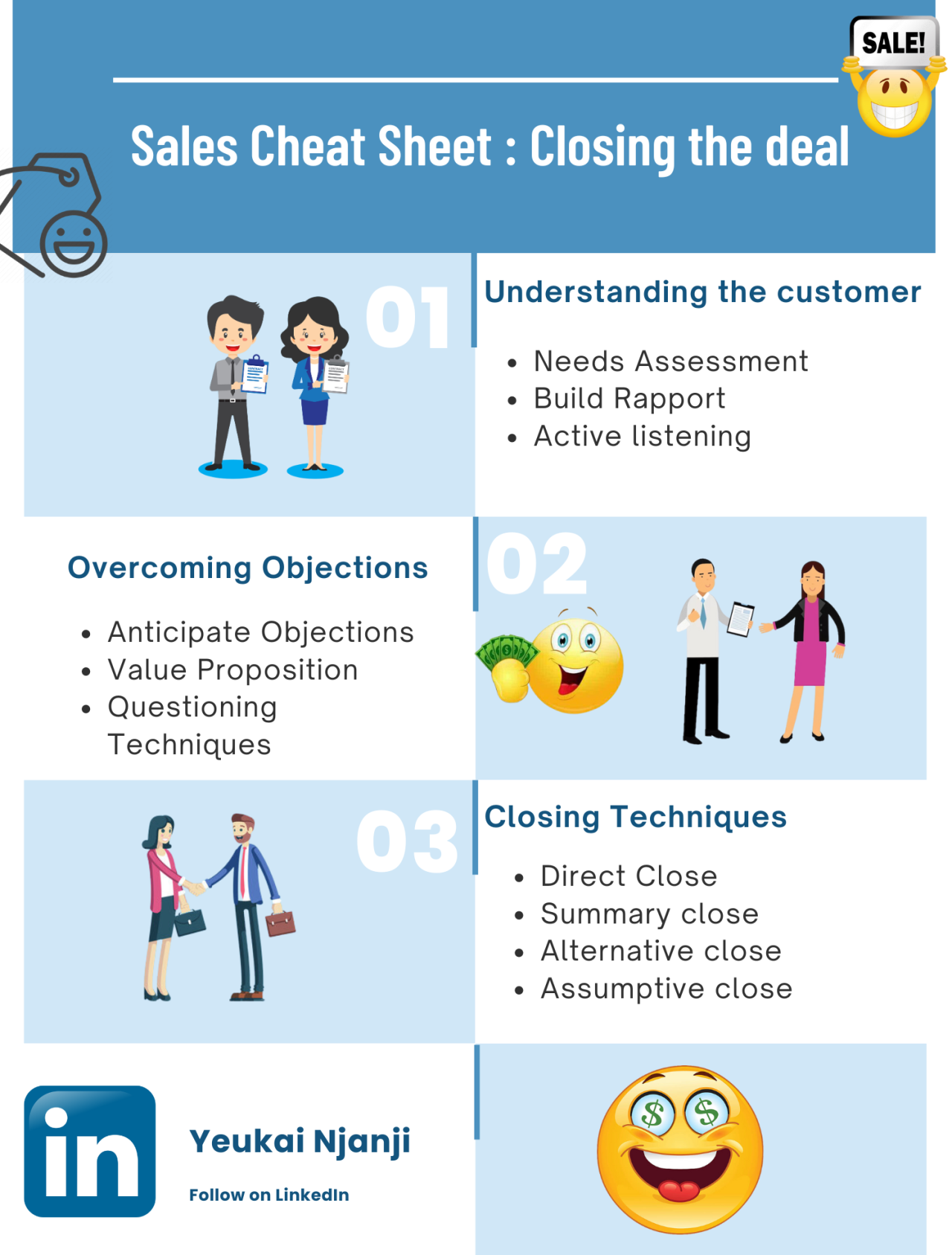Sales 101: Your Essential Cheat Sheet

Sales is an art and a science. While talent plays a significant role, there are core principles and strategies that can significantly enhance your sales performance. This cheat sheet provides a practical guide to help you master the fundamentals.
Understanding Your Customer (High Importance)
- Know Your Target Audience: Clearly define your ideal customer. Understanding their needs, pain points, and motivations is crucial.
- Build Rapport: Establish a genuine connection with your prospects. People buy from people they like and trust.
- Active Listening: Pay close attention to what your customers are saying. This helps you understand their needs better and tailor your pitch accordingly.
Mastering the Sales Process (High Importance)
- Prospecting: Identify potential customers and build a pipeline. Effective prospecting is the lifeblood of sales.
- Qualifying Leads: Determine if a prospect is a good fit for your product or service. This saves time and resources.
- Pitching Your Product: Clearly communicate the value proposition of your product or service. Focus on the benefits to the customer.
- Handling Objections: Anticipate and address potential objections. Turn objections into opportunities.
- Closing the Deal: Ask for the sale confidently. Be prepared to close at multiple points in the sales process.
Sales Communication and Negotiation (High Importance)
- Effective Communication: Clearly and concisely convey your message. Tailor your communication style to your audience.
- Strong Presentation Skills: Deliver compelling presentations that engage your audience. Practice and refine your delivery.
- Negotiation: Develop strong negotiation skills to reach mutually beneficial agreements. Be prepared to make concessions.
Sales Mindset and Attitude (High Importance)
- Positive Attitude: Maintain a positive outlook, even in the face of rejection.
- Resilience: Bounce back from setbacks and learn from failures.
- Self-Discipline: Stay organized and manage your time effectively.
- Continuous Learning: Stay up-to-date on industry trends and best practices.
Sales Tools and Technology (Medium Importance)
- CRM: Utilize a customer relationship management system to track interactions and manage your pipeline.
- Sales Automation: Leverage technology to streamline repetitive tasks and improve efficiency.
- Sales Analytics: Use data to analyze performance and identify areas for improvement.
Remember, sales is a journey, not a destination. Consistent effort, continuous learning, and a customer-centric approach are key to long-term success. By mastering these fundamentals and applying them consistently, you can significantly improve your sales performance and build a thriving career.

